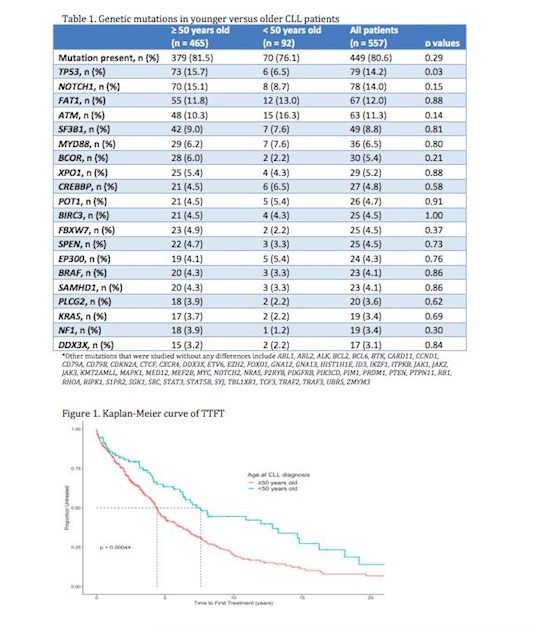While CLL is commonly diagnosed in older patients, there are ~15% of patients diagnosed at ages younger than 50. Several past studies have investigated differences in clinical parameters and treatment outcomes in younger patients with CLL, including a shorter time to first treatment (TTFT) among younger patients (Parikh et al. 2014).
However, few studies have reported on the genetic mutational differences between younger and older cohorts. To bridge this gap, we investigated the mutational landscape between younger and older patients and evaluated the clinical outcome TTFT, hypothesizing that our younger cohort of patients would associate with higher risk lesions and behave more aggressively.
The good news is that they found that younger patients have a longer TTFT, which is contrary to previous studies that have identified younger age as a negative prognostic marker. Future research is needed to determine why younger patients in our cohort appear to have a more indolent disease course in terms of TTFT despite similar baseline prognostic factors and molecular genetics to older patients.
More details here: ash.confex.com/ash/2019/web...
Jackie
